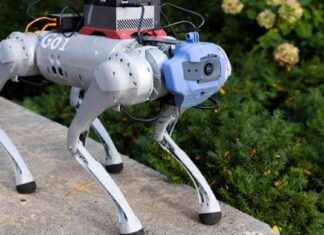The anthropologist and writer Mikel Azurmendi, former member of ETA and one of the founders and first spokesperson for the Ermua Forum, as well as founder also of the Citizen Platform against Terrorism “Basta Ya”, has died at 79, have reported this
Earrings nearby sources.
The president of the collective of victims of terrorism (COVITE), Consuelo Ordoñez, has published in social networks: “I have just given me a very bad news, our beloved Mikel Azurmendi has died this afternoon, it was an honor to have you between us, thanks for
So much. Good trip Mikel! We love you. ”
In another message, COVITE has lamented “a lot” the death of Azurmendi, who qualifies as “a committed citizen against ETA” and “a resistant and friend of Covite”.
“Thanks for everything, rest in peace and a big hug to their relatives,” Covite said in social networks.
Mikel Azurmendi, anthropologist, writer and university professor, was one of the founders and the first spokesperson for the Ermua Forum, as well as one of the founders of the citizen platform “Enough”.
He was born in San Sebastián on December 11, 1942, in a rural family.
He was a degree in Philosophy for the Sorbonne of Paris and Doctor from the University of the Basque Country (UPV).
ETA militant in his youth, in which he entered 1966, was one of the theoretics of the group that evolved towards Marxism, expressly rejected terrorism and broke with it the following year, after being defeated his alternative to leave violence and transform
In a party based on ideas.
He was a professor of the Sorbonne during the Franco regime and after his return to Spain he was approved against the Constitution and the Basque Statute to consider “that there was strength to demand more”.
Professor of Social Anthropology of the Faculty of Philosophy of San Sebastián (UPV) since 1988, had been the subject of ETA threats and a victim of a frustrated attack on his home in San Sebastián, on August 15, 2000.
Days before the attack, in an interview, Azurmendi had declared his intention to leave the Basque Country and settle in the United States due to the “unbearable pressure” to which he was subjected.
He was one of the founders and the first spokesman for the Ermua Forum, Civic Organization created in February 1998 as a result of the Councilor of Ermua, Miguel Angel Blanco by ETA.
The following year, he participated in the Foundation of the platform “Enough already”, a citizen initiative that in his training united people from different ideologies, with the purpose of opposing terrorism in any of his forms, supporting his victims and defending the State
Law, the Spanish Constitution and the Statute of Autonomy.
Constantly threatened by ETA, due to its critical stance with Basque nationalism and its surroundings, this situation forced him to leave the Basque Country at the end of August 2000, and after a brief stay in the US, he returned to Spain and was appointed, in
November 2001, President of the Forum for the Social Integration of Immigrants, an organ of consultation and advice of the Government for the social integration of immigrants and refugees.
During the academic year 2000-2001 was “Visiting Fellow” at the University of Cornell, in New York;
HELLMAN / HAMMET HAMMET Award in 2001, and award for the 2001 coexistence by the Foundation Miguel Ángel Blanco.
Author of several books in Basque, had published two books of poetry, a novel and a book of children’s stories, as well as numerous essays of anthropology.
In 1998 he published the patriotic wound, essay where he analyzes the “dense and absolute identity” of the almost 200,000 Basques who consider themselves at war and, that in it, have forgotten individual freedom and have generated that today “be autochthonous” be “know
Negotiate with fear “.
He followed this one, another controversial trial entitled Prints of El Egido, (2001) a work on the integration of the immigrant, in which he minimized the events that occurred in that town almeria in February 2000.
In 2008 he published Tango de Death, a novel in which he resorted to fiction to verify real events that reflected the “pain” that terrorism produces and the political situation in the Basque Country.







